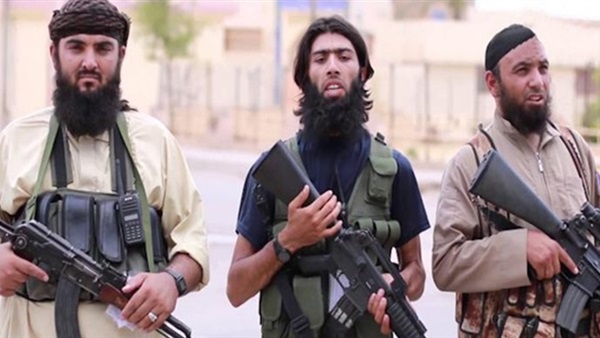Kirkuk attack: ISIS returns to Iraq on anniversary of organization's defeat

In an attempt by ISIS to revive itself and announce its
return to Iraq through qualitative operations carried out by the terrorist
organization’s remnants, one of the largest terrorist operations carried out by
the organization took place during the year 2022.
The terrorist operation carried out by ISIS came several
days before the fifth anniversary of Iraq’s declaration of victory over the
organization on December 10, 2017. ISIS launched a new terrorist attack
targeting the Iraqi Federal Police in Kirkuk Governorate on Sunday, December
18, 2022, which resulted in the death of nine police officers when a vehicle
carrying them was attacked in the area between the villages of Safra and
Al-Shallalat in the Hawija district in western Kirkuk.
This attack, which was claimed by ISIS, is among the
bloodiest attacks launched by the organization in recent months within Iraq,
renewing the organization's operations, as it comes four days after a similar
attack in northern Baghdad that led to the death of a senior army officer and
two soldiers.
The spokesman for the Commander-in-Chief of the Armed
Forces, Major General Yahya Rasool, said, “In a cowardly terrorist act, an
officer with the rank of major and a number of associates were martyred when a
roadside bomb exploded in a patrol of the Federal Police Forces - Second
Mechanized Brigade in the village of Ali al-Sultan in the Ar-Riyad district of
Kirkuk.”
A security source in Kirkuk stated that the attack was
accompanied by a “direct attack with light and medium weapons” in the village
of Shalal al-Matar, 65 km from the center of Kirkuk governorate, saying, “We
killed one of their attacking elements, and we are looking for the other elements.”
Danger alarm
The recurrence of operations carried out by ISIS in a number
of Iraqi governorates that were previously under its control between 2014 and
2017 constitutes an alarm of danger from the return of the terrorist
organization.
The Iraqi government should review security plans and expand
the scope of preemptive intelligence and military operations against the
organization’s hideouts and sleeper cells in many areas where ISIS remnants are
present, especially in the northern and western regions of the country, which
usually spread in areas of contact between the Iraqi federal forces and the
Kurdish Peshmerga forces in the provinces of Kirkuk, Diyala, Salah al-Din and
Nineveh, as well as across the Iraqi-Syrian border.
The occurrence of such painful attacks is due primarily,
unfortunately, to the negligence and complacency of some military units, which
allows the creation of loopholes through which ISIS terrorists can enter to
carry out their bloody operations, in addition to the failure to activate
information and intelligence and security follow-up diligently, continuously
and seriously in large areas where terrorists are present.
Failure to properly track the movements of ISIS and monitor
its supply lines allowed the organization to revive its presence in many Iraqi
regions such as Kirkuk. In addition, the liberation of Safra, the area in which
this attack took place, as is the case with the various areas of Hawija
district, was carried out by armed factions and not by professional security forces,
so many of those areas continue to suffer from the presence of terrorist
remnants.
As Iraq witnessed the celebrations of Victory Day and the
defeat of ISIS, this bloody attack showed that ISIS is able to defy the state
and the security services, conveying a message that it still exists and has not
been completely eliminated, and this is an indicator of the failure and
shortcomings of the security authorities, which did not fully complete their
mission in eliminating all the areas in Iraq where terrorists are present, as
the danger they pose is still imminent. This requires caution, redoubling
efforts to combat terrorism, and monitoring the movements of ISIS and their
sleeper cells everywhere to eradicate danger points.





